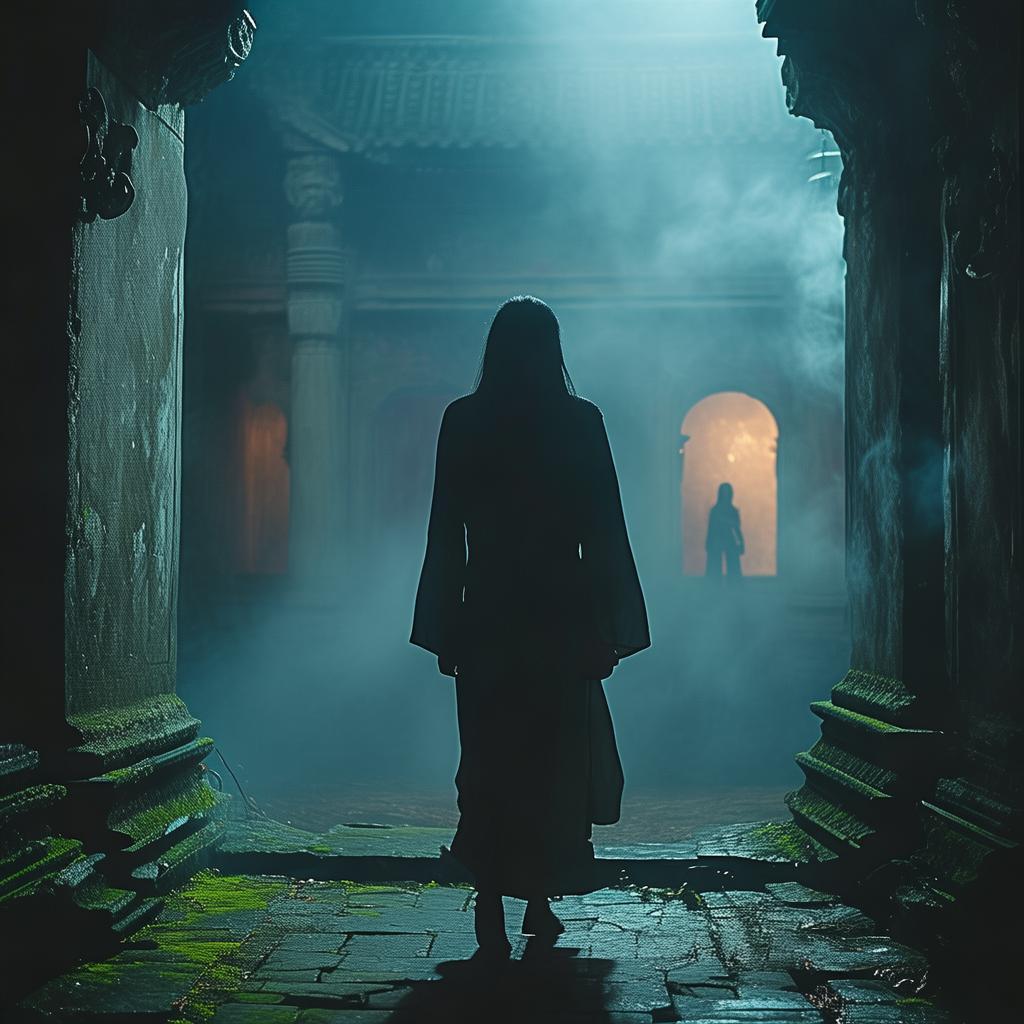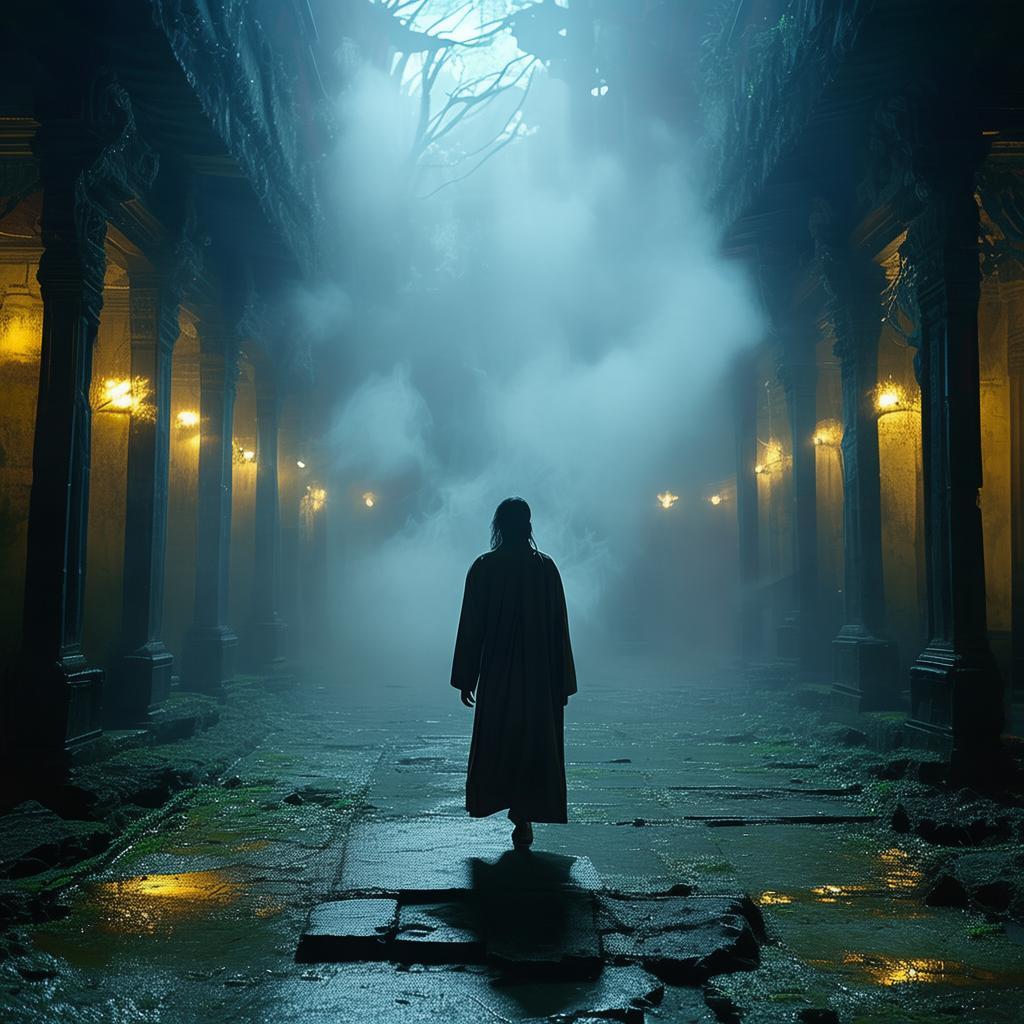The Shadowed Orphanage
The rain lashed against the windows of the old orphanage, a relentless drumbeat that seemed to echo the pounding of her heart. The orphanage, once a sanctuary for abandoned children, now stood as a silent witness to untold horrors. It was a place of whispers and shadows, where time seemed to stand still.
Eliza had inherited the orphanage from her late grandmother, a woman who had passed away without revealing much about her past. The house was a relic of a bygone era, with peeling wallpaper and creaky floorboards that groaned under her weight. She had always been fascinated by the stories her grandmother told about the place, but now, as she stood in the grand foyer, the stories took on a life of their own.
The first night was the worst. As she lay in bed, the room seemed to close in around her. She could hear faint whispers, as if the walls were alive with voices long silent. The air grew colder, and she felt a presence watching her. She tried to ignore it, but the sensation was overwhelming.
The next morning, Eliza decided to explore the house. She had heard rumors of a hidden room, a place where the children had been kept when they were too sick or too troubled to be seen. She found the door hidden behind a stack of dusty boxes in the attic. The key was a simple piece of metal, tarnished with age, but it fit the lock perfectly.
Inside, the room was a mess of old toys and broken furniture. There was a small, wooden bed with a faded blanket, and a small, wooden chair that looked like it had been used for countless hours of rocking. On the wall, a picture of a young girl smiled back at her, her eyes filled with innocence and sadness.
Eliza's heart ached as she realized that this had been the last place the girl had been before she had died. She reached out to touch the picture, and as her fingers brushed against the glass, the girl's eyes seemed to glow. The room was filled with a chilling silence, and Eliza felt a chill run down her spine.
She spent the next few weeks uncovering more about the children who had once called the orphanage home. She discovered letters, diaries, and even a journal belonging to her grandmother. The journal revealed that her grandmother had been a nurse at the orphanage, and that she had tried to help the children, but she had been unable to save them all.
As Eliza delved deeper into the past, she began to see patterns. The children had been subjected to cruel experiments, and many had died as a result. Her grandmother had tried to protect them, but she had been overpowered by the corrupt doctors who ran the orphanage.
One night, as Eliza sat in the library, she felt a presence once again. This time, it was stronger, more insistent. She followed the sensation to the attic, where she found a hidden staircase leading to the roof. She climbed the stairs, her heart pounding with fear and curiosity.

At the top of the roof, she found a small, abandoned room. In the center of the room was a large, ornate box. She opened it, and inside she found a collection of photographs and letters. Among them was a letter from her grandmother to her, explaining that she had been forced to leave the orphanage and had taken the box with her.
Eliza realized that the spirits she had been hearing were the children herself, reaching out to her for help. She knew she had to face the truth and bring justice to the innocent souls who had been so wronged. With a heavy heart, she began to piece together the story of the children's deaths, determined to make sure their suffering would not be forgotten.
The climax of her investigation came when she confronted the last surviving doctor, a man who had been trying to cover up his crimes for decades. As he confessed his guilt, the spirits of the children surrounded him, their eyes filled with a mixture of anger and relief. Eliza watched as the doctor was taken away by the police, and she knew that the children had finally found peace.
In the end, Eliza decided to turn the orphanage into a museum, a place where people could learn about the history of the children and the courage of her grandmother. She dedicated the museum to the memory of all those who had lost their lives, and she vowed to keep their stories alive.
The orphanage became a place of healing, a place where people could come and remember the past and honor the lives of those who had been lost. Eliza found solace in the knowledge that she had done what she could to make things right, and she felt a sense of closure that she had been searching for all her life.
✨ Original Statement ✨
All articles published on this website (including but not limited to text, images, videos, and other content) are original or authorized for reposting and are protected by relevant laws. Without the explicit written permission of this website, no individual or organization may copy, modify, repost, or use the content for commercial purposes.
If you need to quote or cooperate, please contact this site for authorization. We reserve the right to pursue legal responsibility for any unauthorized use.
Hereby declared.









